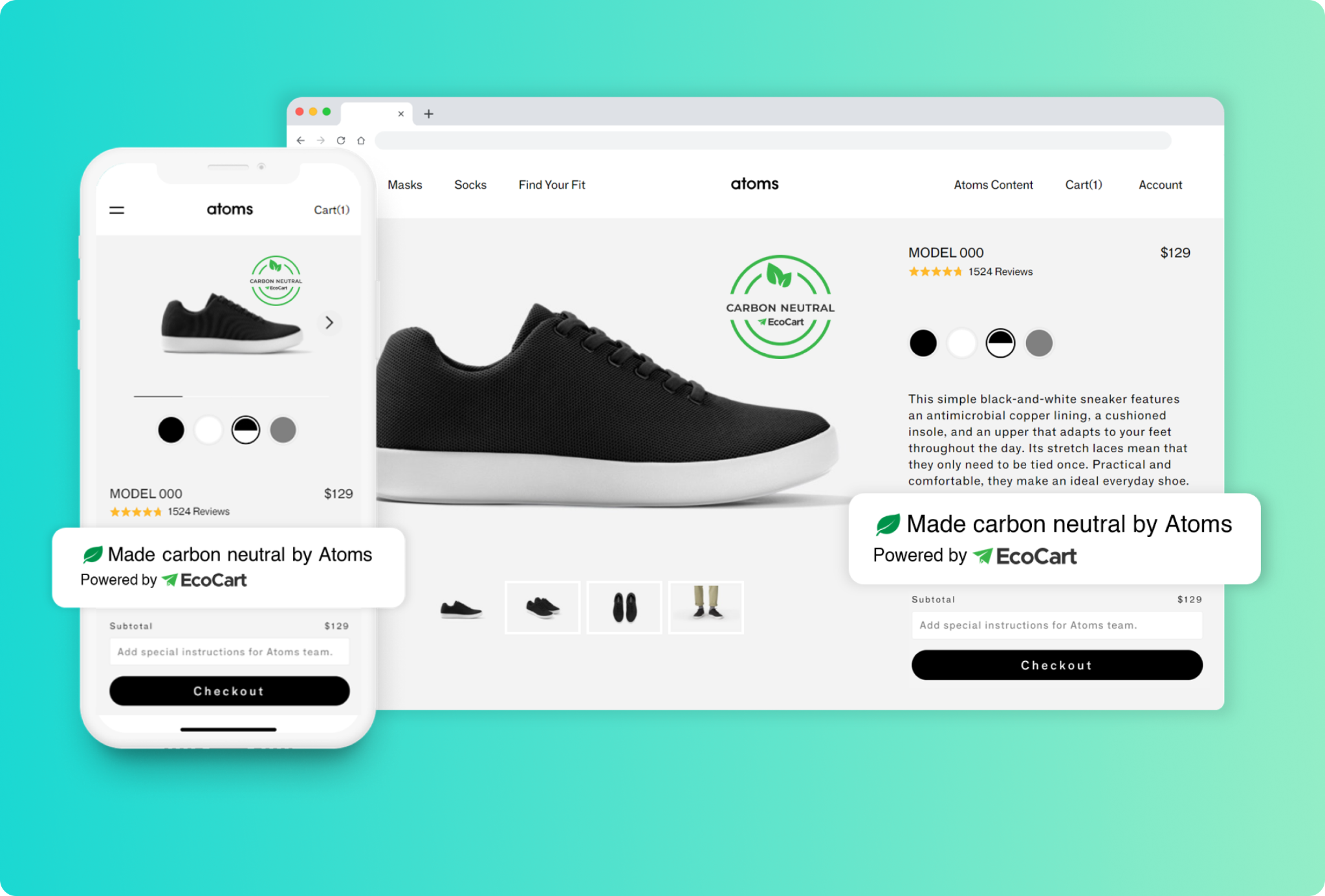The pressing emergency of the climate crisis has left consumers to value something new from businesses: sustainability. Consumers are looking for brands to help them make a difference in the world, contributing to their “sustainable lifestyles” in a positive way.
With online shopping at an all-time high (who can resist getting a pair of shoes with same-day shipping), e-commerce waste is a growing threat to our planet. It can be easy to ignore the problem of e-commerce waste when “adding to cart” is as easy as a click of a button, but in recent years, consumers are becoming more aware of dirty supply chain consequences.
The way e-commerce retailers choose to package, transport and distribute all have repercussions. From inefficient transportation to warehouse energy use to plastic packaging waste, e-commerce has a lot of room for improvement.
Keep reading for a rundown of today’s consumer values and how businesses can prioritize (and market) sustainability!
A Breakdown of Today’s Consumer
Today’s consumers are well aware of the social and environmental issues that are present today. Thanks to the internet they have an unparalleled understanding of how the products they buy and the brands they support impact the environment—for better or worse.
This extreme awareness has led them to demand more from brands, particularly when it comes to sustainability. In fact, 64% of Americans are willing to pay more for sustainable products.
71% of consumers want to support brands whose values align with their own, values like sustainability and taking care of the planet. If brands want to capture new audiences and retain loyal customers they have to be considering what is important to them.
The pandemic has exacerbated consumer’s conscious efforts to be more environmentally friendly. Since the beginning of the Covid-19 pandemic, 54% of consumers believe it’s more important to reduce their own carbon footprint. 62% of consumers say it’s more important now than before that companies behave in a more sustainable and eco-friendly way. As well, social media has increased awareness around environmental and climate change issues by 30% since the beginning of the pandemic. All of this change has further fueled an existing need for sustainability and transparency.
The desire and need for sustainability is clear, so how do brands implement sustainability effectively?
Sustainable Solutions
When it comes to starting a sustainable initiative it can be very overwhelming and often require a lot of upfront costs. Now that’s not to say you shouldn't be looking at those types of solutions, but they may be difficult when you’re first starting.
EcoCart is a great tool for any brand to up (or start) their sustainability game without having to completely overhaul their supply chain. EcoCart is a free plugin that e-commerce brands can add to their stores in order to provide a carbon-neutral shopping experience.

EcoCart’s proprietary algorithm determines the carbon footprint of any given order, considering things like manufacturing and shipping of the product. Once the carbon footprint is determined, a proportionate amount is donated to verified carbon offsetting projects, initiatives like protecting forests, building wind farms, and providing fuel-efficient cookstoves. All of these projects work to reduce or eliminate carbon from the atmosphere, all while improving the livelihood of those that live where the project takes place.
Carbon offsetting is just one tool to utilize while looking to implement sustainable practices. Considering moving to sustainable packaging, offering slower shipping options, developing a recycling program, or partnering with organizations like 1% For the Planet. All of these are great initiatives to showcase your commitment to sustainability to your customers.
How To Market Sustainability
Now that you have prioritized sustainability, how can you show this to consumers? Let’s run through some do’s and don’t when it comes to marketing initiatives surrounding sustainability:
Don’t Greenwash
Greenwashing is a deceiving trap that even the most eco-conscious consumer can fall for. Greenwashing is when a company prioritizes marketing itself as environmentally friendly, rather than actually putting the time and effort into being environmentally friendly.
Greenwashing is benefiting from the rise in demand for sustainability without actually doing much to be sustainable. Saying you are eco-friendly without actually being eco-friendly can be a huge risk to your reputation and ruin all trust you have with consumers.
Do Be Transparent
Transparency is key in marketing your sustainable efforts. We all have to start somewhere. Even if your company has much room for improvement, be honest with your audience in your journey to sustainability.
Don’t sugarcoat your effects on the environment, instead, show what you are doing to become more responsible as a company.
Bonus Tip: Seek third-party certifications to become more credible and gain consumer trust when making claims about sustainability.
Do Be Clear
The majority of consumers don’t want to put in a lot of work to figure out if you are sustainable or not. Make your stance on sustainability clear and digestible. Messaging that is easy to understand will have a greater impact.
One way to be clear is to be specific, don’t glaze over your sustainability efforts with overuse buzz words. Instead, get into the details of what your company is doing to make a change, showing how your sustainable efforts may benefit their everyday lives.
Do Educate
Take time to educate consumers on the climate crisis and show your commitment to long-term environmental change. A post on Earth Day isn’t going to cut it anymore, instead regularly update and educate your audience on the pressing climate crisis. Your company must be committed to change in a consistent and reliable way, both in marketing and internal initiatives!
Steps Towards Change
We are in a climate emergency, pressing businesses to adapt their practices towards a more eco-friendly path. We partnered with EcoCart to guide companies in their journey to become more sustainable, improving their existing processes with greener solutions and showing their customers the value of our planet!
